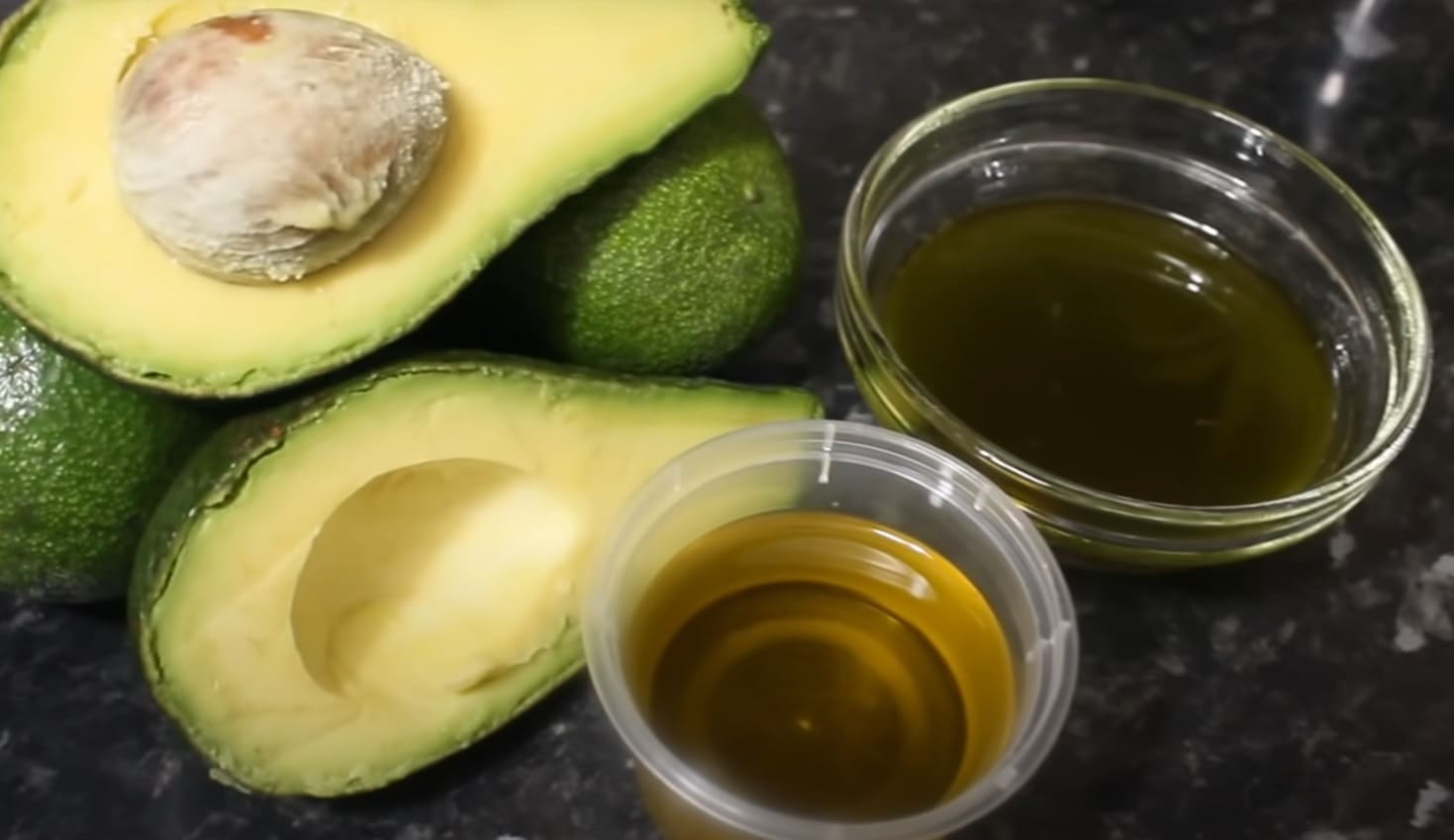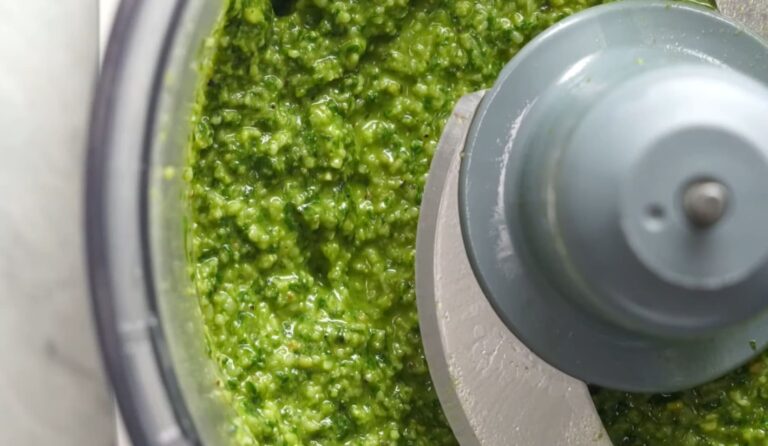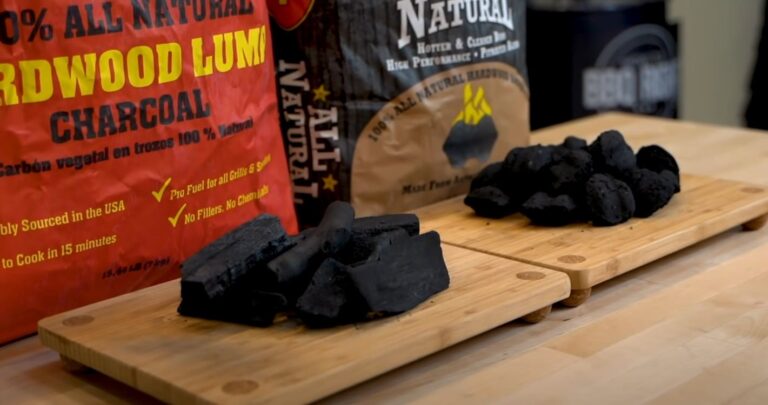Can You Mix Vegetable Oil and Peanut Oil?
Oil has long been an integral part of food culture and is often used by people. People like to use oil for cooking for several reasons:
- Flavor: Oil can enhance the flavor of the food and add richness and depth to dishes. For example, olive oil is often used in Mediterranean cuisine for its distinctive taste and aroma.
- Texture: Oil can help create a desirable texture in foods. Frying in oil, for instance, can make foods crispy and crunchy.
- Heat transfer: Oil is an effective heat transfer medium that can quickly and evenly distribute heat to foods, making them cook faster and more evenly.
- Convenience: Oil is easy to use and widely available, making it a convenient choice for cooking.
- Health benefits: Certain oils, such as olive oil and avocado oil, are rich in monounsaturated and polyunsaturated fats, which can help reduce the risk of heart disease and lower cholesterol levels.
However, it is important to note that using too much oil in cooking can contribute to excess calories and unhealthy fat intake, which can lead to health problems over time. It is important to use oil in moderation and choose healthier options whenever possible.
Vegetable Oil and Peanut Oil: Can You Mix It?
Yes, you can mix vegetable oil and peanut oil together. Both oils are commonly used for cooking and frying, and they can be combined in any ratio to suit your recipe or taste preferences.
When mixing oils, it’s important to consider the smoke point of each oil. The smoke point is the temperature at which the oil begins to break down and produce smoke. When oil is heated beyond its smoke point, it can release harmful compounds and create an unpleasant taste in the food.
Overall, combining vegetable oil and peanut oil can be a good way to create a custom blend of oils that suits your needs. Just be sure to consider the smoke point of each oil when deciding on the ratio and the cooking temperature.

Components Of Vegetable Oil
Vegetable oil is a general term that refers to a broad range of oils that are derived from various plant sources. As a result, the exact components of vegetable oil can vary depending on the type of oil and the plant source from which it is extracted. However, most vegetable oils contain a combination of the following components:
- Fatty acids: Vegetable oils are primarily made up of various fatty acids, including monounsaturated, polyunsaturated, and saturated fats. The specific types and ratios of fatty acids can vary depending on the plant source and the processing method used to extract the oil.
- Vitamin E: Many vegetable oils contain vitamin E, which is a powerful antioxidant that can help protect cells from damage caused by free radicals.
- Phytosterols: These are naturally occurring compounds that are similar in structure to cholesterol. They are found in many vegetable oils and can help to lower cholesterol levels in the body.
- Carotenoids: Some vegetable oils contain carotenoids, which are pigments that are responsible for the bright colors of certain fruits and vegetables. These compounds have antioxidant properties and can provide some health benefits.
- Trace minerals: Some vegetable oils may contain small amounts of trace minerals, including iron, magnesium, and zinc.
It’s worth noting that some vegetable oils may contain additives, such as preservatives or anti-foaming agents, which can impact their composition. Therefore, it’s important to carefully read the ingredient list when purchasing vegetable oil and choose a high-quality oil that is free from any unnecessary additives.
Components Of Peanut Oil
Peanut oil is a type of vegetable oil that is derived from peanuts. It is a rich source of various nutrients and contains the following components:
- Fatty acids: Peanut oil is primarily composed of unsaturated fatty acids, including oleic acid, linoleic acid, and palmitic acid. These fatty acids provide the oil with its characteristic flavor and aroma.
- Vitamin E: Peanut oil is also a good source of vitamin E, a powerful antioxidant that helps protect the body against damage caused by free radicals.
- Phytosterols: Peanut oil contains phytosterols, which are plant-based compounds that are similar in structure to cholesterol. They can help to lower cholesterol levels in the body.
- Resveratrol: This is a type of antioxidant that is found in peanuts and can be present in peanut oil. Resveratrol has been shown to have anti-inflammatory and anti-cancer properties.
- Carotenoids: Some varieties of peanut oil may contain small amounts of carotenoids, which are pigments that give fruits and vegetables their bright colors. These compounds have antioxidant properties and may provide some health benefits.
- Trace minerals: Peanut oil contains small amounts of various trace minerals, including magnesium, copper, and zinc.
It’s worth noting that while peanut oil is generally considered to be a healthy source of fat, it is also high in calories and should be consumed in moderation as part of a balanced diet. People with peanut allergies should also avoid consuming peanut oil or any products containing peanut oil.

Differences Between Vegetable Oil And Peanut Oil
Vegetable oil and peanut oil are two common types of cooking oils, and they differ in several ways:
- Source: Vegetable oil is a generic term that refers to a broad range of oils that are derived from various plant sources, including soybeans, canola, sunflower, and corn. Peanut oil, on the other hand, is specifically derived from peanuts.
- Flavor and aroma: Vegetable oil has a neutral flavor and aroma, which makes it suitable for a wide range of cooking applications. Peanut oil, on the other hand, has a distinct nutty flavor and aroma, which can add a unique taste to certain dishes.
- Smoke point: The smoke point of an oil is the temperature at which it begins to break down and produce smoke. Peanut oil has a relatively high smoke point, typically around 450°F (232°C), which makes it suitable for high-temperature cooking methods like deep-frying. Vegetable oil, on the other hand, has a lower smoke point, typically around 400-450°F (204-232°C), which makes it suitable for moderate-temperature cooking methods like sautéing and baking.
- Nutrient content: Peanut oil is a good source of vitamin E, phytosterols, and other nutrients, while vegetable oil may contain a range of nutrients depending on the plant source from which it is derived.
- Allergies: Peanut oil may cause allergic reactions in people with peanut allergies, while vegetable oil is generally considered to be safe for most people.
- Price: Peanut oil is typically more expensive than vegetable oil, due to the higher cost of producing and processing peanuts. Vegetable oil, on the other hand, is relatively inexpensive and widely available.
Overall, the choice between vegetable oil and peanut oil will depend on the specific cooking application and personal taste preferences. Both oils have their own unique qualities and can be used in a wide range of dishes.
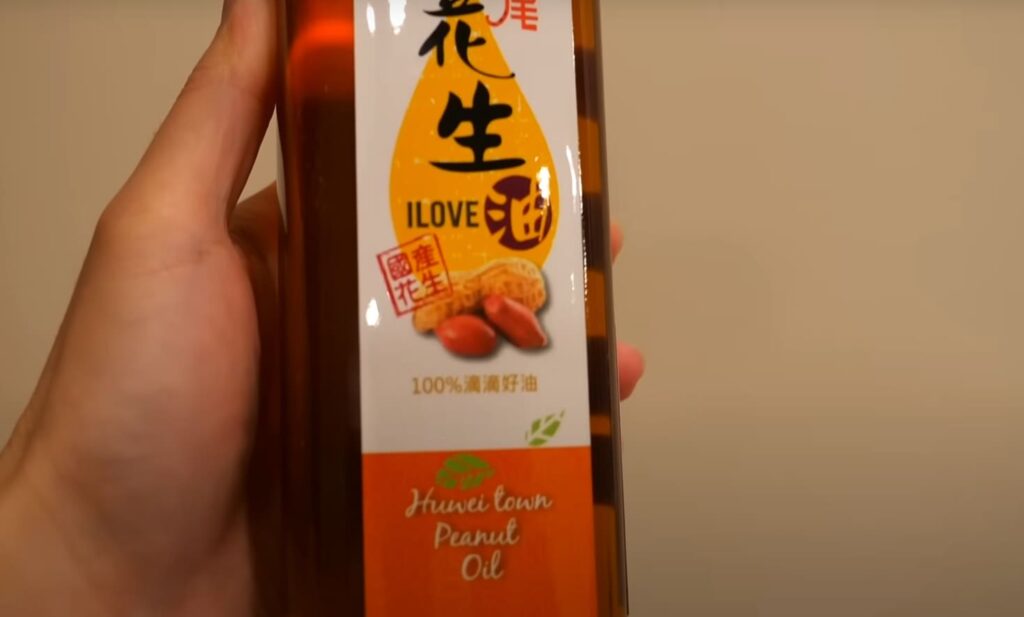
Who Invented Peanut Oil
Peanut oil is a natural product that has been used for centuries, particularly in regions where peanuts are grown. It is not possible to credit a single inventor for the creation of peanut oil, as it has been produced and consumed in various forms throughout history.
However, the modern method of extracting peanut oil using mechanical pressing and solvent extraction was developed in the late 1800s and early 1900s. George Washington Carver, a prominent African American scientist and inventor, played a significant role in developing new uses for peanuts, including the development of new peanut oil extraction methods. He is also credited with promoting the use of peanuts and peanut oil as a sustainable and nutritious food source in the United States and around the world.
Today, peanut oil is a widely used cooking oil and is produced by various companies and manufacturers using modern processing methods. However, its history and use as a natural product date back centuries and are deeply rooted in the cultures and traditions of regions where peanuts are grown.
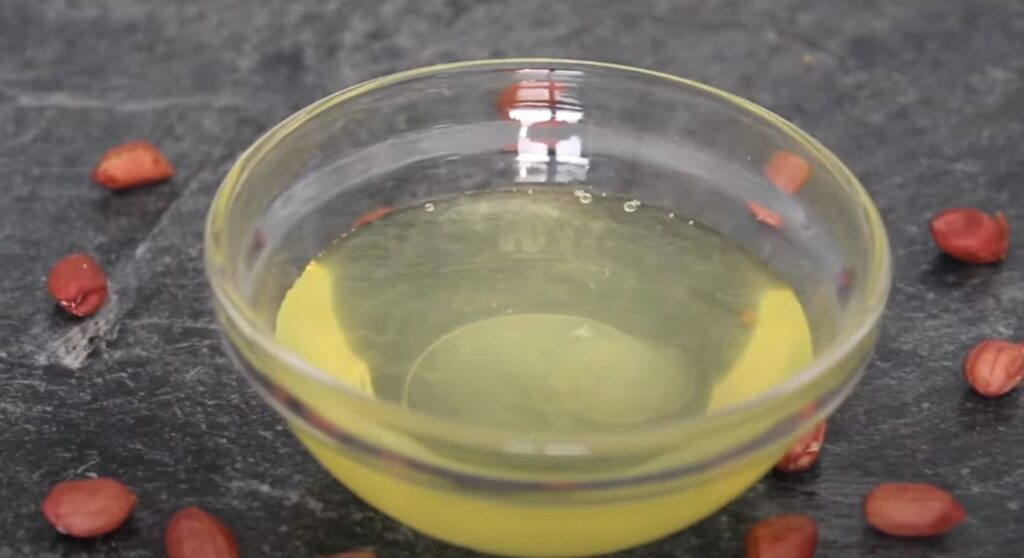
Who Invented Vegetable Oil
It is not possible to credit a single inventor for the creation of vegetable oil, as it has been produced and consumed in various forms throughout history. Vegetable oil is a generic term that refers to a broad range of oils that are derived from various plant sources, including soybeans, canola, sunflower, and corn. Each of these oils has a unique history and development, and the use of plant oils for food and fuel dates back thousands of years.
However, the modern method of extracting vegetable oil using mechanical pressing and solvent extraction was developed in the 1800s and early 1900s. This process allowed for large-scale production of vegetable oils and enabled the creation of new types of oils that could be used for various purposes, including cooking, cosmetics, and industrial applications.
Today, vegetable oil is a widely used cooking oil and is produced by various companies and manufacturers using modern processing methods. However, its history and use as a natural product date back centuries and are deeply rooted in the cultures and traditions of regions where various plant oils are grown and consumed.
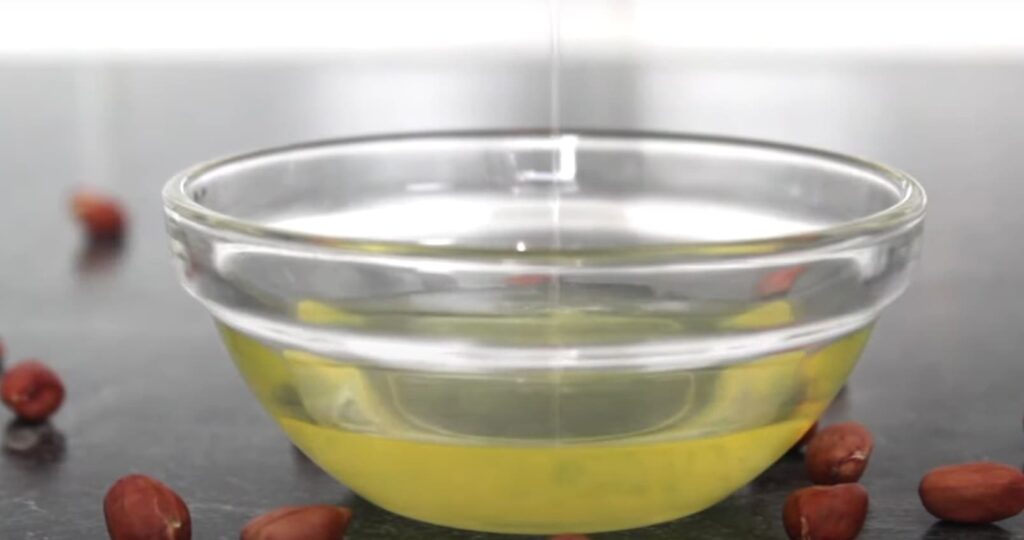
FAQ
What are the not useful properties of vegetable and peanut oil?
Although vegetable and peanut oils have many useful properties, there are also some properties that are not considered desirable. Some examples include:
- High in calories: Both vegetable and peanut oils are high in calories, which means that they can contribute to weight gain if consumed in large quantities. For this reason, it is important to use these oils in moderation as part of a balanced diet.
- Low in nutrients: While vegetable and peanut oils do contain some nutrients, such as vitamin E and healthy fats, they are not as nutrient-dense as whole foods like fruits, vegetables, and whole grains.
- Risk of rancidity: Oils can become rancid over time, especially if they are exposed to heat, light, or air. Rancid oil has an unpleasant taste and smell and may also contain harmful compounds. For this reason, it is important to store vegetable and peanut oils in a cool, dark place and to use them within their expiration dates.
- Potential for allergies: Peanut oil can cause allergic reactions in people with peanut allergies, while vegetable oil can cause allergic reactions in people with allergies to specific plant sources, such as soybeans or sunflower seeds.
- Environmental impact: The production of vegetable and peanut oil can have an environmental impact, particularly if it involves the use of pesticides or other chemicals. It is important to choose oils that are produced in a sustainable and environmentally friendly way.
Why is it useful to mix vegetable and peanut oil?
Mixing vegetable and peanut oil can provide several benefits in cooking and food preparation. Here are some reasons why it is useful to mix these oils:
- Flavor: Vegetable oil has a mild flavor, while peanut oil has a stronger, nutty flavor. Mixing the two oils can create a unique flavor profile that is both subtle and distinctive.
- Smoke point: Peanut oil has a high smoke point, which means it can be heated to high temperatures without burning. Vegetable oil has a lower smoke point, but it can be mixed with peanut oil to increase its smoke point and make it suitable for high-heat cooking methods like frying.
- Cost: Peanut oil is typically more expensive than vegetable oil, so mixing the two oils can be a cost-effective way to achieve some of the benefits of peanut oil without the higher price tag.
- Nutrition: Both vegetable and peanut oils have different nutritional profiles, and mixing the two oils can provide a more balanced blend of healthy fats and other nutrients.
Overall, mixing vegetable and peanut oil can be a versatile and practical option for cooking and food preparation, particularly when it comes to achieving specific flavor profiles or adapting to different cooking methods.
Which dish will be best combined with vegetable and peanut oil?
Vegetable and peanut oil can be used separately or together in a variety of dishes to add flavor and enhance cooking performance. Here are some examples of dishes that may be well-suited to a combination of vegetable and peanut oil:
- Stir-fry dishes: Stir-fries often require high heat and quick cooking times, which makes peanut oil a good choice due to its high smoke point. Mixing it with vegetable oil can help balance out the flavor and improve the overall texture of the dish.
- Roasted vegetables: Roasting vegetables in a mixture of vegetable and peanut oil can add a subtle nutty flavor and help the vegetables caramelize and crisp up nicely.
- Salad dressings: A blend of vegetable and peanut oil can make a flavorful and healthy base for homemade salad dressings. The nutty flavor of peanut oil can complement a variety of salad ingredients, from leafy greens to crunchy vegetables and grains.
- Baked goods: A combination of vegetable and peanut oil can add moisture and richness to baked goods, such as muffins, quick breads, and cakes. The nutty flavor of peanut oil can also add depth and complexity to these sweet treats.
Overall, the combination of vegetable and peanut oil can be a versatile and delicious option for a wide range of dishes, from savory to sweet. Experimenting with different ratios and uses can help you find the perfect blend for your cooking needs.
Useful Video: Can you mix vegetable oil and peanut oil to fry a turkey?
Conclusion
Vegetable and peanut oil have both made significant contributions to the culture of food around the world. These oils have been used in traditional and modern cuisines alike to add flavor, texture, and nutritional value to a variety of dishes.
In many cultures, vegetable oil has become a staple ingredient in everyday cooking, from stir-fries to salad dressings to baked goods. Its neutral flavor and versatility make it an ideal choice for a wide range of dishes, while its high smoke point allows for high-heat cooking methods like frying and sautéing.
Peanut oil, on the other hand, has a more distinctive flavor and is often used in regional cuisines such as Southern, African, and Asian cooking. Its high smoke point and nutty flavor make it a great choice for stir-fries, roasted vegetables, and salad dressings, while also adding depth and richness to baked goods.
Together, these oils have contributed to the development and evolution of culinary traditions around the world, and have helped to create a diverse and flavorful global cuisine. Whether used separately or together, vegetable and peanut oil have become an essential part of the culture of food, and will continue to play an important role in the culinary world for years to come.

